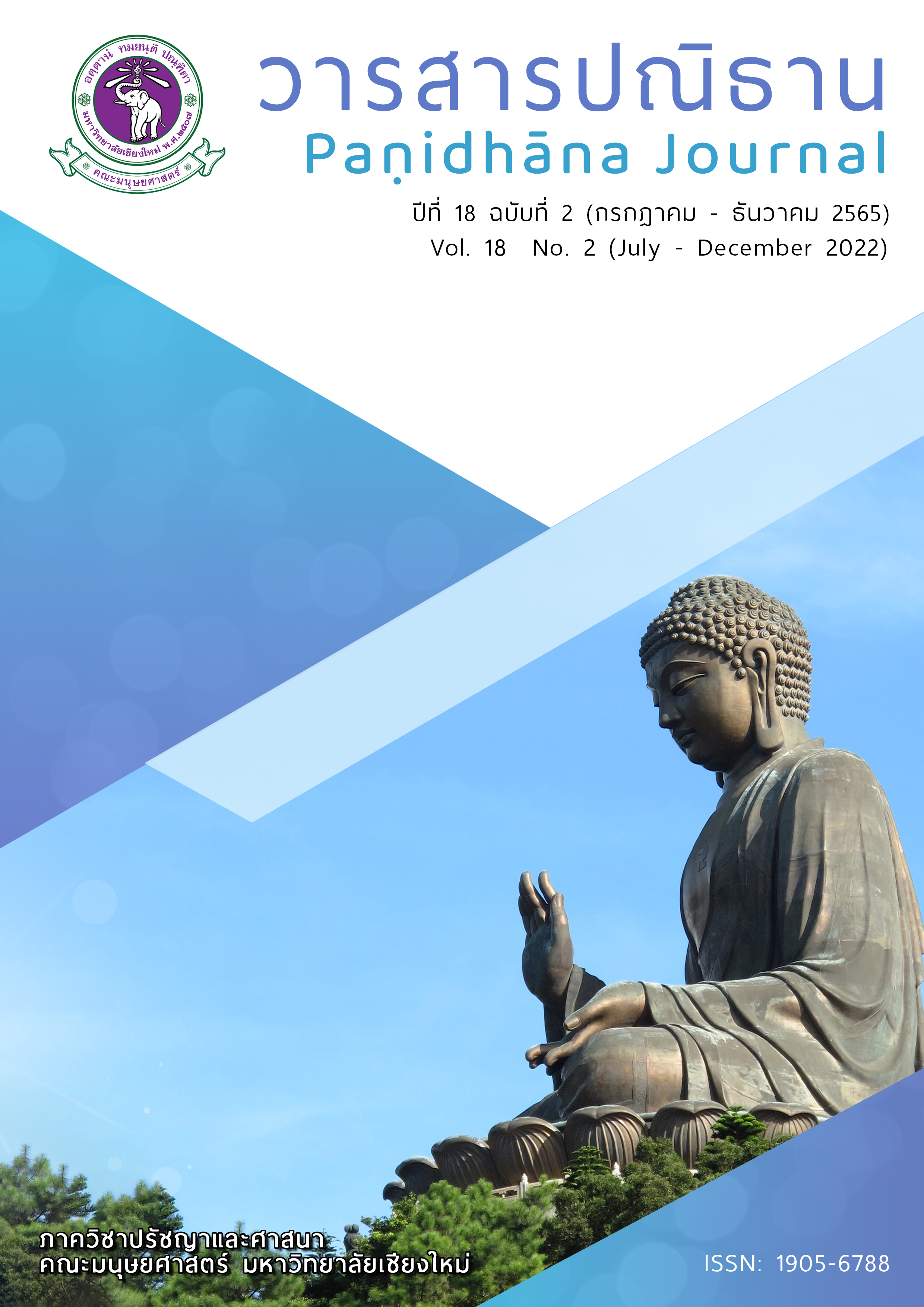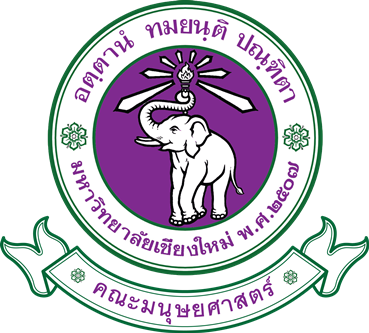Anapanasati Approach for the Path to Emotional Intelligence of the Elderly
Keywords:
. อานาปานสติ, ความฉลาดทางอารมณ์, ผู้สูงอายุAbstract
An academic article titled "Anapanasati Approach for The Path to Emotional Intelligence of the Elderly." It is a collection of views on the practice of Anapanasati and emotional intelligence. The objectives of this study are to study and analyze the path towards emotional intelligence of the elderly through Anapanasati.
Anapanasati Sutra is a single sutra that deals with conscious awareness of breathing in and out. It can be both Samatha and Vipassana Meditation. The Dharma Principles in the Anapanasati Sutta are (1) Satipatthana4 (2) Bojjhana 7 (3) Itthibaht 4 (4) Concentration 4 (5) Organic 5 (6) Strength 5 (7) The Eightfold Path. When the elderly practice Anapanasati, they are consciously aware of their breathing in and out, resulting in peace and tranquility, resulting in goodness from the inside, namely the mind, to the outside, namely the body and the wider society. The elderly who practice Anapanasati regularly will have high emotional intelligence and be able to understand and manage their emotions and stress appropriately. The elderly has an understanding of the feelings of others and can learn how to overcome stress and pressure that can lead to emotional violence. Suppose the elderly do Anapanasati more and more. One will be far from defilements, born of knowledge, and have attained enlightenment. In that case, the loosening of clinging and Samma Vimutti is liberation. In addition to emotional intelligence, there are 3 other benefits, which are: 1) Dittadhamikatta (current benefits), to raise the level of physical and verbal behavior, and higher mortality, in addition to being useful to oneself. It is also beneficial to society, the economy, and the environment. 2) Conversation (benefits in the next life or life) to good birth, which is the ultimate goal. Finally, the highest benefit is 3) Paramattha, being able to abandon defilements, escape from Samsara, and enter the State of Nirvana
References
ชัญญาภัค พงศ์ชยกร. (2561). มหัศจรรย์แห่งอานาปานสติในพระพุทธศาสนาเถรวาท. วารสารปรัชญา-ปริทรรศน์, 23 (2), 40.
ตฤณกร เกตุกุลพันธ์. (2560). EQ Management for Excellence. สืบค้นเมื่อ 12 มีนาคม 2565, จาก https://www.thebest-training. com/
ปริยสุทธิ์ อินทสุวรรณ. (2562). สร้างพลังใจให้สูงวัยยามชรา. สำนักงานสนับสนุนการสร้างเสริมสุขภาพ. สืบค้นเมื่อ 22 มกราคม 2565, จาก https://www.thaihealth.or.th/Content/
มูลนิธิมหามกุฏราชวิทยาลัย. (2536). พระไตรปิฎกและอรรถกถาแปล ฉบับมหามกุฏราชวิทยาลัย (91 เล่ม). พิมพ์เนื่องในวโรกาสครบ 200 ปี แห่งพระราชวงศ์จักรี กรุงรัตนโกสินทร์ พุทธศักราช 2525. (พิมพ์ครั้งที่ 3). เล่มที่ 22. กรุงเทพมหานคร : มหามกุฏราชวิทยาลัย.
ราชบัณฑิตยสถาน. (2556). พจนานุกรมฉบับราชบัณฑิตยสถาน พ.ศ.2554. พิมพ์ครั้งที่ 1.กรุงเทพมหานคร : บริษัทศิริวัฒนาอินเดอร์พริ้นท์ จำกัด (มหาชน).
ริชาร์ด เดวิดสัน. (2556). สมองพัฒนาได้ด้วยการเจริญสติ. (ตอนที่ 1). สืบค้นเมื่อ 6 มีนาคม 2565, จาก https://mgron line.com/dhamma/
วิชนี คุปตะวาทิน, แมน วาสนาพงษ์, พรทิพย์ ขุนดี และรัชตา มิตรสมหวัง. (2561). สังคมสูงวัยกับโลกสมัยใหม่. วารสารวิชาการ สถาบันเทคโนโลยีแห่งสุวรรณภูมิ, 4(special 2018), 444-450.
วิภาดา สนเพ็ชร และพระมหาบุญไทย ปุญฺญมโนม. (2562). การเจริญอานาปานสติในศูนย์พัฒนาการจัด
สวัสดิการสังคมผู้สูงอายุบ้านบางแค, วารสารบัณฑิตศาส์น, มหาวิทยาลัยมหามกุฏราชวิทยาลัย, 17 (2), 41-42.
พระ คัมภีร์ เทพ ธ มฺ มิ โก. (2018). รูป แบบ การ ให้ คำ ปรึกษา ครอบครัว และ ผู้ สูงอายุ. วารสาร พุทธ จิตวิทยา, 3(1), 38-51.
สุณี เวชประสิทธ์. (2018). รูปแบบการศึกษาพระพุทธศาสนา: ประโยชน์ต่อคนวัยทำงาน. วารสารปรัชญา ปริทรรศน์, 23(1), 93-101.
สำนักเลขาธิการสภาการศึกษา. (2552). การศึกษาองค์ความรู้เกี่ยวกับคุณลักษณะของคนไทยที่พึงปรารถนา : ความฉลาดทางอารมณ์. (พิมพ์ครั้งที่ 1). กรุงเทพมหานคร : บริษัทพริกหวานกราฟฟิค จำกัด.
Help Guide. (2022). Emotional Intelligence. Retrieve: 20/04/2022 https://www.helpguide.org/
articles/mental-health/emotional-intelligence-eq.htm
Downloads
Published
How to Cite
Issue
Section
License
Copyright (c) 2022 PAṆIDHĀNA JOURNAL

This work is licensed under a Creative Commons Attribution-NonCommercial-NoDerivatives 4.0 International License.
Copyright of article published in Panidhana Journal is owned by "Panidhana" and its licensors
You may request permission to use the copyright materials on this website by writing to journalphilrecmu@gmail.com







